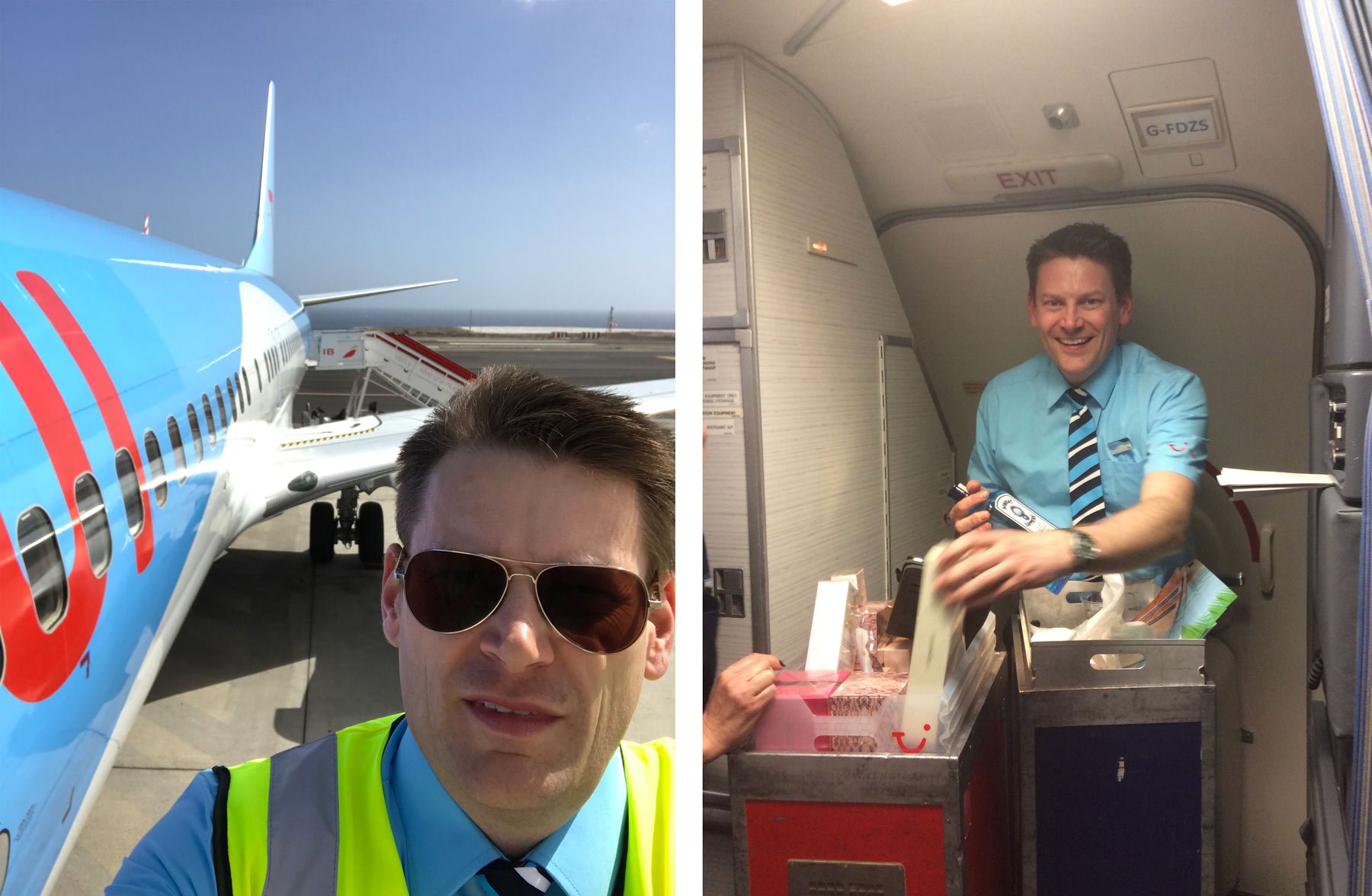Tourism on trend
by Alyssa Jaffer
With tourism confidence fluctuating and the uncertainty of restrictions and testing requirements over the recent past, how exactly do you build a travel brand based on the thrill of an impromptu jet-set for a European city break? To find out, Alyssa Jaffer spoke to Toby Horry, Group Brand & Content Director at the world’s largest leisure, travel and tourism company, TUI.
Toby Horry and his family in Greece; images courtesy of Toby Horry
Following the extended travel slump of the last two years, we’re seeing European confidence in travel on the rise once again, as pandemic restrictions recede and tourism heats up across the continent. Heading into the third year of the pandemic, the latest European Travel Commission research reported that three in five Europeans are planning to travel in the next six months, despite the Omicron variant.
But the pandemic has not been kind to the tourism industry, and German multinational company TUI was no exception. In Toby Horry’s view, it has also been an opportunity for meaningful brand building. “Clearly the last two years has been incredibly difficult and disruptive for the travel industry but if anything, it has made the role of brands even more important,” he said.
“Customers started to prioritise reassurance and trust over things like price, and in that situation, they turn to brands they know. We knew that we needed to make sure our brand was as strong as possible for when we came out on the other side of the pandemic, so we've been very busy on our brand strategy, brand identity and advertising.”
Toby built his career in branding from humble beginnings as a runner, making tea and photocopies, to get his start in television advertising production. Graduating from the University of Nottingham with a history degree, he began work as a strategic planner at creative agency AMV BBDO in London, where he worked on accounts like Wrigley, Whiskas and Nicorette. After a few years working in digital marketing at Tesco, Toby finally made the move to lead the brand at TUI UK in 2018, and as of last year, has taken on brand responsibility across the group.
“Shots from 'Back to the Skies' day where I essentially worked as cabin crew for a day on a flight to and from Tenerife, to help understand the day-to-day operation and pressures that our flight crew experience. And—of course—to understand the customer experience.”
Building a brand through the challenges of lockdowns, travel uncertainty and changing government restrictions across Europe hasn’t been easy, even for a prolific brand like TUI. The secret sauce? A healthy mix of thinking two steps ahead with future gazing, and supportive communication across the organisation.
“The key to the last two years has been juggling the very short-term needs of customers alongside the long-term vision for the brand,” explained Toby.
“Often, rules and regulations have changed with little or no notice, so we've had to get very good at turning communication around in a very short space of time to help customers feel informed and reassured. And we've had to think laterally about propositions—for example, helping customers with the cost of COVID testing or how to fill in country entry forms.
“The key here has been flexibility. Very few plans survived first contact, so we've become very good at being able to quickly evolve to Plan B, C and D. We've simultaneously been working on our long-term strategy, which resulted in our new advertising campaign launched in October 2021. And of course, the other key thing has been to try and keep our colleagues informed with what's going on and be as transparent as possible when they've all been under huge pressure,” said Toby.
And the unsteadiness in European tourism during the pandemic can’t be overstated, with seasonal patterns and usual predictions in traveller sentiment turned sideways. “There were huge fluctuations in travel last year, to the point where year-on-year comparisons quickly became meaningless in many instances,” said Toby.
“These fluctuations have largely been driven by the overarching COVID narrative, alongside country-specific rules and regulations. This has meant that at times, different markets have seen sales growth or decline at different times.”
As the spring approaches, the travel industry seems to be turning a greener leaf. “The good news now is that all markets are in significant growth, so fingers crossed, things will continue in the same direction,” Toby said.
Moving towards a more stable year, Toby shared his top travel trends for 2022. “The main trend is that people want to travel! A lot of people haven't been able to travel for over two years and you can see that they are now desperate to see the world again,” Toby said.
“In addition, we're seeing that people are keen to make their next a holiday a really good one to make up for lost time, so that might mean upgrading to a better room or going to a more exotic destination.”
Toby also touched on the evolution of business travel towards a remote work blend with modern hospitality, which we explored in the January issue of ALHAUS.
“From a business point of view, hybrid working is going to be a hot topic. Getting the right blend of office work and remote working is going to take a bit of trial and error, but we can see that colleagues do hugely appreciate the flexibility that remote working brings,” he said.
Toby left us with some food for thought around brand storytelling: “Brands act as shortcuts for consumers, so the ability of a brand to have a clear position in the market is crucial. Storytelling can play a huge role in this, although it can take many forms and is also reliant on consistency and repetition of brand codes and great brand experience.”


